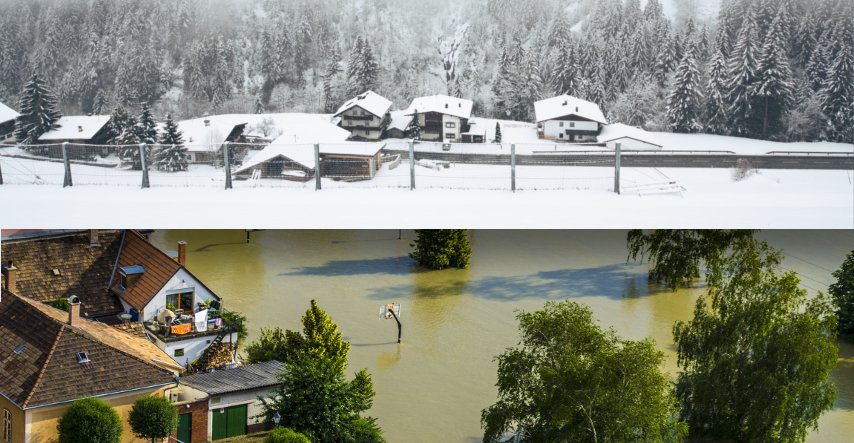
Which crisis scenarios should you prepare for?
So what kind of emergencies might arise in Europe?
The answer is simple. It’s the “small”, often highly “unspectacular” incidents that could completely turn our usual shopping routines upside down. These days, we’re used to getting fresh products at almost any time of the year in our supermarkets or picking up fresh items daily from the baker or butcher. Many households shop once or twice a week, buying fresh milk, bread, rolls, sandwich fillings, salads and anything else that their hearts desire. In the majority of cases, the products are bought in the exact quantity required until the next shopping trip.
Nowadays, all key consumer goods are transported via a distribution system for the retail trade that functions extremely well. The logistics behind all this are referred to as “Just In Time” – goods are supplied in cycles, so that minimal time in storage is all that’s required. So your supermarket around the corner probably gets a new delivery of goods twice a week. And generally, this is enough to cover the local customers’ needs for a week.
But this complex supply system is also very prone to failure.

Something as simple as snowy or icy roads can cut off smaller towns and villages from their food supply. Floods in the Frankfurt region of Germany isolated entire regions and thousands of people were affected.
Severe weather, strikes and power failures are just some of the everyday reasons why our usual food supplies could be restricted or even cut off, in a very short period of time.
If, for example, the weekly deliveries to your supermarket are interrupted by severe weather conditions or as the result of strikes, you can be sure that your supermarket shelves will be empty within a week, if not before.
Large areas across Europe have been affected by power cuts in recent years. The result was, that within 24 hours, bakers’ ovens didn’t work – meaning no more bread products. In supermarkets and private households, fridges and freezers failed to do their jobs and the food shelves in supermarkets were empty, having sold out within 48 hours.
On their website, the German Federal Office of Civil Protection and Disaster Assistance ( http://www.bbk.bund.de ) therefore recommends that every household should have sufficient stocks set aside to provide for a period of one to two weeks, consisting of food and drinks that can be stored for longer periods, even without refrigeration.
“We cannot prevent natural disasters but we can and must equip individuals and communities to stand up to them, in the best possible way."
Kofi Annan, UN Secretary General, October 2005
How can I put together my own emergency supply package?
What should I consider when doing so?
At conserva.de, across Europe, we’ve spent many years developing and putting together compact, light and long-lasting emergency supply packages, that are rich in both energy and vitamins.
With our 30 and 90-day emergency supply packages, you receive everything you need for an emergency food source. All our products have to correspond to the very highest qualityrequirements. As a result, we place particular importance on the quality and composition of our products. Locally sourced, environmental and animal protection, certified organic products and a great taste – these are the selection criteria for our products that are stocked in our online shop.

Our in-house team is available at any time to help with questions about our products or about creating an emergency supply package.
Just call +44 1634 91 00 01 or send us a message using our “Contact form”.
Your conserva.de team
This could also be of interest to you:
In times of need, "beggars can't be choosers"
But they should! And we can be» read more
When buying emergency supply packages, the old saying has never been more relevant: “You get what you pay for!”
» read more



